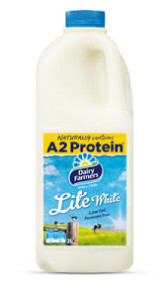The food movement, Australia
My daily walk to the Charles Perkins Centre at Sydney Uni takes me past Ground Up—the campus community garden.

It has a greenhouse. And vegetables.

It’s summer here!
My daily walk to the Charles Perkins Centre at Sydney Uni takes me past Ground Up—the campus community garden.

It has a greenhouse. And vegetables.

It’s summer here!
The McDonald’s closest to the part of the University of Sydney where I am working temporarily, looks like no McDonald’s I’ve ever seen.
Under The Corner, it says McCafe. This place is a Maccas, as they call them here.

The Corner offers an acceptable salad bar.
And slogans:

An improvement? Yes, but why not in the U.S.?
Here in Australia, yesterday was Australia Day (somewhat equivalent to the American Fourth of July) although many prefer to call it Invasion Day, Survival Day, or Day of Mourning and to make it an occasion for protest. Hence: the fuss over the what Google Australia posted as the day’s Google Doodle.
Newcomer that I am, I celebrated with some Glebe Street gelato:
Can’t read the sign?
“Celebrate Australia Day with Vegemite Gelato on toast!”
Yum.
I’m in residence at the Charles Perkins Centre at the University of Sydney for a bit and am getting the chance to learn the Australian version of food politics.
I like milk with my coffee. Here’s all they had at a local corner store.

The banner on the label says that it “NATURALLY contains A2 protein.*”
A2 protein? What’s that?
The label, alas, is not much help.
*Dairy Farmers milk naturally contains A2 protein as well as A1 protein. Of those proteins, our tests to date confirm that 50-7-% is A2.
So? Should we care? YES, according to the A2 Milk Company:
The two main types of milk proteins are the casein and the whey proteins. These make up to 80% and 20% of the protein content of cows’ milk respectively. Other proteins present at low levels in milk include antibodies and iron carrying proteins.
Beta-casein makes up about one third of the total protein content in milk. All cows make beta-casein but it is the type of beta-casein that matters. There are two types of beta-casein: A1 and A2. They differ by only one amino acid. Such small differences in the amino acid composition of proteins can result in the different protein forms having different properties.
According to a press account,
For nearly 20 years, there have been claims that the A2 beta-casein protein is easier to digest than A1, but it’s been dismissed as unscientific. This pilot study at Curtin University…found subjects on an A2 milk diet reported less bloating abdominal pain, and firmer stools, by staying off A1 beta-casein.
But this milk contains both A1 and A2 proteins.
In any case, guess who funded this research!
Comparative effects of A1 versus A2 beta-casein on gastrointestinal measures: a blinded randomised cross-over pilot study. Ho S, Woodford K, Kukuljan S, Pal S. Eur J Clin Nutr. 2014 Sep;68(9):994-1000. doi: 10.1038/ejcn.2014.127. Epub 2014 Jul 2.
The label has more to say:
Of course, it’s made here in New South Wales and it’s Permeate Free—so it’s less processed and simply delicious.
Permeate Free? What’s that? A local website explains:
Permeate is simply a collective term for the natural lactose, vitamin and mineral components which are separated from fresh milk by a process called ultrafiltration. Because milk is a natural food (and tastes different from cow to cow) filtering the permeate out (before putting it back in) allows processors to regulate their milk so they can control the taste, protein and fat content.
Apparently, Australian labeling authorities allow this process to qualify as “natural?”
The label lists these ingredients: Skim milk, milk, milk solids [the source of the extra A2 proteins and the Permeate?].
Next time, I’ll look for a product with precisely one ingredient: milk.
Louise Fisher, a dietitian and food and nutrition consultant in Australia, writes:
I’ve loved your recent blog posts on Coca Cola’s sponsorship of research that fortuitously concludes that it’s not Coke that’s making us fat, it’s lack of exercise. It’s no surprise to see that the alcohol industry here in Australia is running the same line. I just received a link to a guide to “get the facts on alcohol” Beer the beautiful truth from Lion, one of our biggest suppliers of beer. And what do you know, beer doesn’t make you fat, you just need to be more active.
Under Myth Busters on page 4:
DOES ALCOHOL CAUSE WEIGHT GAIN? DOES BEER MAKE ME FAT? It’s not the alcohol per se that causes weight gain. Eating or drinking more calories/kilojoules (energy) than you burn, from any food or drink, can contribute to weight gain. It is important to balance the calories we eat and drink with those we burn through physical activity and basic functioning like breathing and sleeping.
If you do drink, it’s important to know the calories in alcohol mainly come from the alcohol content, as well as the carbohydrate and sugars content. For example, a low strength beer will typically have less calories than a full strength beer. So really, it comes down to how much and what type of alcohol you have and what you eat with it – the chips, the kebab. Plus how active you are.
Hey. If this strategy works for Coca-Cola….
Michele Simon’s latest investigative report deals with sponsorship by food corporations of the Australian Dietetics Association.
Consistent with her previous report on corporate sponsorship of the American dietetic association (now The Academy of Nutrition and Dietetics), this one finds that the Dietitians Association of Australia (DAA):
The DAA offers its corporate sponsors the following benefits:
This is a good deal for food and beverage corporate sponsors.
It’s not such a good deal for DAA members. At best:
As Simon concludes:
The health of all Australians depends upon the independence of the nutrition profession and its leadership’s ability to operate free of conflicts of interest and be the nutrition leaders they claim to be, free from sponsorship money.
*Additions:
February 19: Dr. Sara Grafenauer APD PhD of the DAA wrote me an e-mail detailing charges of error in this account. She also wrote to Michele Simon. Food company sponsorship of nutrition professional societies deserves far more critical attention than it usually gets and I am glad to see this debate.
February 20: Dr. Grafenauer writes again: “Thank you for considering our concerns however, with all due respect, the following statement is factually incorrect and should be removed:
DAA’s credential, Accredited Practising Dietitian (APD) is very important to the association and its members. It has rigorous processes around its maintenance and integrity and would never be used for purposes other than it is designed (for such as ‘gagging’ a member as is suggested here). There is no basis for this potentially defamatory statement and DAA will take whatever steps are necessary to defend the credential.”
We will be seeing industry-sponsored ratings on food packages. Australians, on the other hand, are considering front-of-the-package traffic lights. Thanks to Morten Strunge Meyer (MortenCopenhagen) for sending this link to the Australian report on this proposed system.
I am at the Festival of Ideas in Adelaide this week and checked out the local supermarket. Shrek was everywhere. I counted at least ten special displays of Shrek-illustrated foods positioned at the ends of 5 aisles, along one entire wall (with a blow up Shrek doll), and in stand-alone areas. Shrek III has arrived in Australia but does Australia really need a store full of Shrek-green Froot Loops (devoid of fruit, of course), Shrek cheese-flavoured snacks, Shrek-illustrated chocolate flavoured biscuits, and Shrek candies? And a local McDonald’s also has a Shrek tie-in. This is about one thing and one thing only: marketing junk food to kids. Not a good idea.